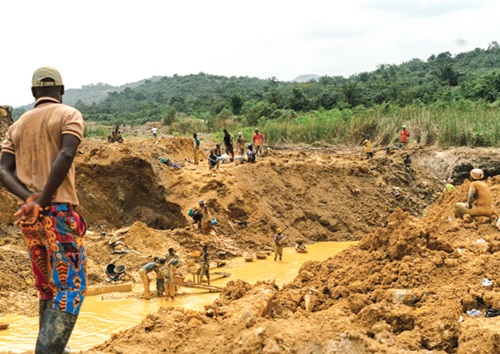Because no society can survive without maintaining law and order, traditional society in Ghana has evolved several systems of ensuring that members of the society can live together peacefully, whilst competing for ownership of the resources with which Nature had blessed them.
Each system has built-in mechanisms, such as hierarchy and punishment, with which to enforce rules and regulations that, from ages of observation, provide empirical evidence that if applied impartially and firmly to the society, it can survive and prosper.
The custodians of this system tend to be classified as chiefs or priests, and their only hope of being able to preserve themselves in office is to hold dear, the principles and precepts which their ancestors applied to their day-to-day administration of their society, before passing on to “the other side”.
This is why in say, the court of an Akan chief, recourse is made incessantly to what the predecessors of the current rulers said or did. Indeed, such is the inviolable reliance on precedent in the gatherings of our traditional administrators that it sometimes looks as if the current office-holders do no thinking of their own at all, but only invoke the thoughts of the dead and buried.
However, anyone who holds them in contempt on account of that would live to regret the insolence that breed such contempt. For human nature does not change, and the general doctrines that settled contentious issues in the past, are almost always guaranteed to be able to do so again. Yes, circumstances may change and call for the adaptation of wisdom of the past to suit present realities.
But the essence of what brings peace and tranquilly in society – justice, fairness, and understanding — never really change. Which is why it has been a great mistake, not only in Ghana, but in most former colonial countries, for the colonialists to have derided the indigenous laws that governed colonial societies before the colonialists arrived, as generally “backward” and obsolete.
It was an even as greater mistake for the elites us that succeeded the colonial regimes, gladly to gleefully accept the derogatory evaluation of the ancient systems by which colonial societies had been ruled, simply because the colonialists had adroitly created a situation whereby they would hand over power to people ss similar to the colonialists as possible.
Hence, “Oxford? Cambridge? Inns of Court” Capital!” the departing colonialists chortled, as they departed. They knew that they had sown seeds of privilege and corruption that would ensure that the new rulers would be tempted to enrich themselves, at the expense of the generality of their own people. And the interests of the rich coincide with those of other rich people, no matter where they happen to live.
In Ghana, for example, we have laws that provide that no person can be elected to Parliament – the body that makes laws for the entire country — if he/ she cannot read and write English.
But it doesn’t occur to those classified as “qualified” to be MPs by the departing colonialists to ask themselves, “Before the colonialists came, was there armed robbery in our country? Were there rapes? Was there the fraudulent sale of land and other properties“?
In fact, the greatest question our “educated” classes should currently ask themselves is this: “WHY was there no galamsey-type destruction of water-bodies in this country in times past, although the people dug up so much gold, that the country was known as ‘the Gold Coast’?”
I have a few answers for them! The people who dug up the gold, in those days, had been trained to understand the
Importance of water, and so never worked too close to rivers and other water-bodies.
They knew that people could pollute the drinking water of everyone if they washed clothing and other articles in the water. So they designated areas of each water-body, where washing could take place, and areas where water could only be fetched to take home, for drinking purposes!
Anyone caught washing things in the Drink-Only section of a river would be reported to the chief, and he or she would be fined or otherwise punished.
If anyone had thought of taking an excavator or bulldozer to a riverbank, people would gather together in their Asafo Group (almost by magic!) and go and waylay him.
The Asafo would first send intelligence personnel to watch the movements of the excavator and its owner(s) and then surprise them one dawn. They would arrest them and take them to the police station. And they would watch what the police would do. If they didn’t like what they saw, they would make the police know!
If this happened in one village or town where galamsey had been destroying water-bodies, other villages and towns would hear about it and take similar action.
The Asafo would also seek to obtain information (especially secret information) from the courts and also, police sources, regarding the ownership of the excavators and bulldozers. For if you catch the operators of the vehicles but leave their owners alone, it’s like “killing a snake without cutting off its head”!
Do you know what our people say about doing such a thing? They say the snake would “eventually wake up“ and come to look for you to bite you! That is what has happened to our Government’s many campaigns ostensibly aimed at ending galamsey. Those arrested by the Government’s “Task Force” are taken to court, where they are usually bailed. If they are fined, the fines are promptly paid. And galamsey goes on.
Why? Because the Government does not care to go after the rich and powerful people who sent the excavator and bulldozer drivers, and the changfang operators, to the rivers and water-bodies to pollute and destroy the water did not have mercury or cyanide to use to poison the water, even if they has wanted to.
















